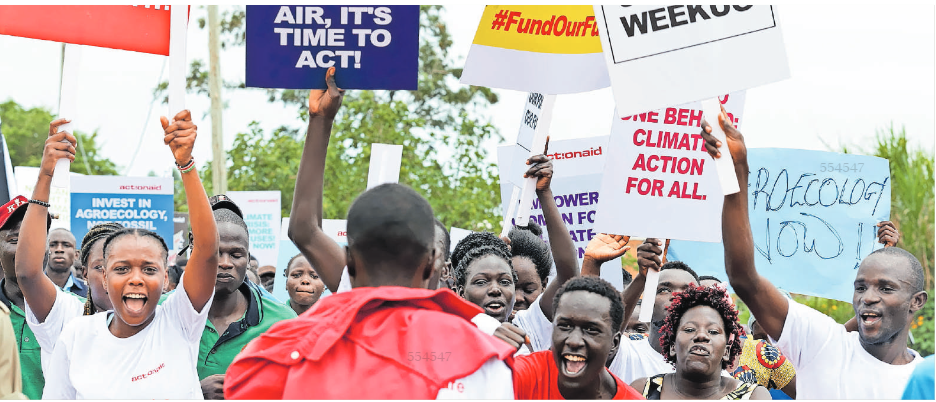Farmers want African leaders to include agroecology in CAADP framework

A group of youth climate change activists carry placards climate change messages on September 20, 2024. PHOTO | SYLIVIA KATUSHABE
What you need to know:
- Mr Hakim Baliraine, board chairperson of Eastern and Southern Africa Small-scale Farmers Forum (ESAFF) told a stakeholder meeting on agroecology that government should urge other African leaders to support the voices of farmers and integrate agroecology.
Small holder farmers, youths and Civil Society Organizations have urged the government through the ministry of agriculture to mobilize African governments to include agroecology in the next Comprehensive Africa Agriculture Development (CAADP) summit to be held in January 2025 in Kampala to declare 2026-2035 new African agriculture strategy.
This call comes at the foothills of this year’s youth summit held Addis Ababa Ethiopia where representatives of 47 African countries echoed demand for agroecology to be embedded in the CAADP framework.
Mr Hakim Baliraine, board chairperson of Eastern and Southern Africa Small-scale Farmers Forum (ESAFF) told a stakeholder meeting on agroecology that government should urge other African leaders to support the voices of farmers and integrate agroecology.
“Agroecology must be recognized as a primary strategy within Africa’s agriculture policies as research shows that agro ecological practices increase crop resilience by up to 30 percent,” he said.
Mr Baliraine added that agro-ecological practices help a lot in areas prone to drought and extreme weather, and helps smallholder farmers maintain productivity and income in challenging conditions.
He said African governments should empower small scale food producers, women and youths to have meaningful roles in decision making beyond token participation to enact insightful policies that shape and directly impact their lives.
He called on the rejection of GMO’s and synthetic inputs which often favor large corporations at expense of biodiversity and soil health by enacting stronger biosafety protocols and protection against corporate control of Africa’s genetic resources.
Other demands for the CAADP framework include allocating financial investments to farmer managed seed system and bio fertilizer and supporting and facilitating the establishment of an inclusive advisory role for food producers.




